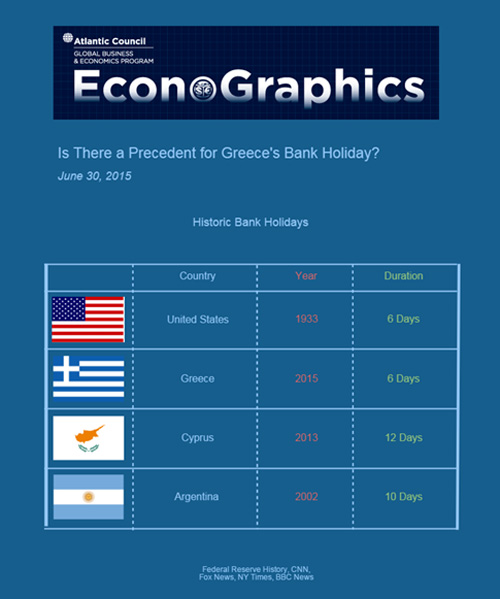The Greek Government officials called for a bank holiday on Sunday which went into full effect Monday, June 29th. Although the country plans to open its banks’ doors next Monday, its financial duress is far from over.

This course of action however, is not unprecedented. In 1933, the United States Federal Reserve was forced to close its doors for a similar period during The Great Depression. Following the 65 percent decline of the peso bank in 2002, Argentines called for an eight day bank holiday which put the entire country in panic as citizens were only able to pull 175 dollars from their accounts each week. In 2013, Cyprus also called for a twelve day bank holiday after a monetary imbalance left the country with few options. This financial crisis impacted more than just locals since a little under half of the deposits held by the bank were made by non-residents.
Multiple European, Asian and South American countries have faced economic turmoil but have chosen different recovery routes. According to McGraw Hill Financial, Iceland was able to recover from its crisis in 2008 through “currency depreciation and private sector defaults”. After its first year of economic growth in 1998, Russia was unexpectedly thrown into a downward spiral which required the country to default on its sovereign debt, devalue the ruble, and suspend payments by commercial banks to foreign creditors for a period of 90 days.